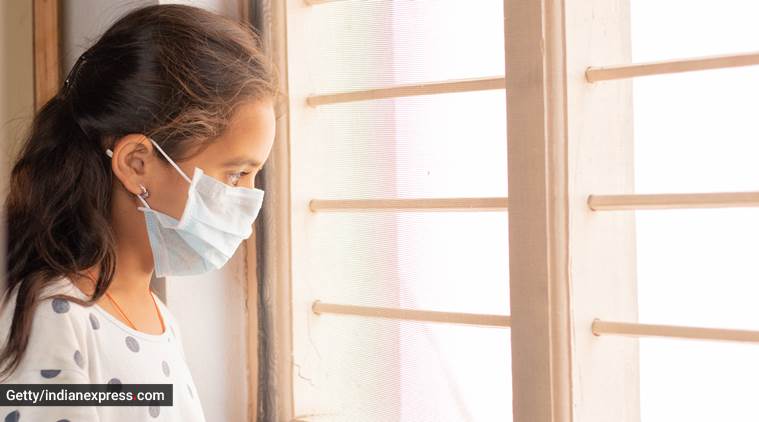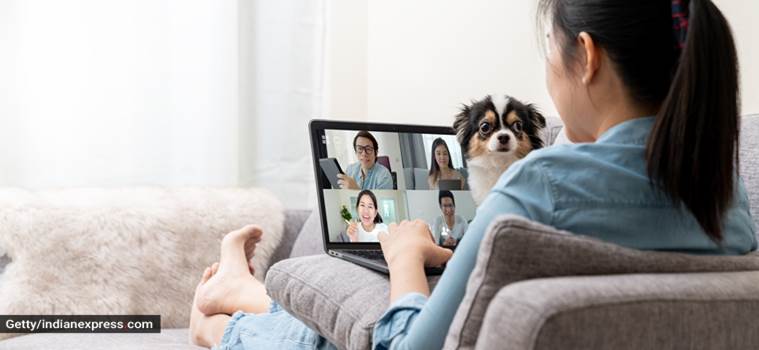 Let’s see how the pandemic changes the rules of society. (Source: Getty Images/Thinkstock)
Let’s see how the pandemic changes the rules of society. (Source: Getty Images/Thinkstock)
“Man is a social animal,”states the first chapter of every sociology book. If you did take it up in college and even though bunked or slept through the lectures, you would still remember the different types of societies primarily because you and your group of friends got teased as one or the other tribe.
Sociologists classified societies into six categories, each of which possessed their own unique characteristics — hunting and gathering societies; pastoral societies; horticultural societies; agricultural societies; industrial societies and finally, the post-industrial societies.
This is a stage of society’s development when the service sector generates more wealth than the manufacturing sector of the economy. There is a transition from production of goods to providing of services. Knowledge, communication, producing and sharing ideas became valued assets, as did gradually the dependence on networking and social skills.
If social skills and socio-economic behaviour were the constructs to go by, I presume it’s time to add a new one to the list — the post-Covid-19 societies. It does truly qualify for one, with very unique characteristics.
The pre-Covid 19 was a prolific time for socialisation and exponential value of networking. It was probably the golden era of social relationships, where affiliation, association, dominance and leadership became quintessential to social success. Socialising became the near equal to learning, growth, exposure, establishment, entertainment and, unfortunately, self-worth.
ALSO READ | Matters of the mind: The screen time debate
School parents met through their children and bonded more tightly than the kids themselves, business meetings and conferences ended in night-long partying and, conventionally speaking, “job rivals” became BFFs. Distinguished skills of diplomacy, political correctness, having a multitude of best-friends, sustained ability to focus through the day while partying and drinking every other night became worthy parameters of social prowess and development. The traditional summer and winter holidays where families travelled together to bond and make memories were replaced by friends and neighbours making plans, learning to get along to ensure they are part of the next outing.
Affiliation and inclusion, doing anything to fit in and belong became a priority as a side-effect of the growth-oriented post-industrial society. And then the corona virus colonised us. As a quick and effective strategy, lockdowns were imposed. In a work-hard, party-hard society that was so used to connecting with one another, stepping out and meeting friends was all of a sudden not only risky but also lawfully speaking, a crime. Socialisation came to a standstill.
As a mental health professional, I committed to free mental health consults through the lockdown (which got extended five times), to Covid patients and their families and, of course, anyone else in distress. Far more than anxiety over the pandemic and health concerns, I have observed increasing anxiety, panic attacks and listlessness over not being able to meet friends, shops being shut, children staying home and spouses interfering in the kitchen. Of course, there was acute distress over “what if I get the virus” too, but “not being able to step out” has been a near-recurring complaint.
Abraham Maslow’s hierarchy of needs is an iconic theory of motivation which states that there are five categories of human needs that dictate an individual’s behavior. Those needs are:
*Physiological needs: Air, food, water, shelter, warmth, sleep, etc.
*Safety needs: Shelter, security, law & order, employment, health, stability, etc.
*Social needs: Belongingness, love, affection, intimacy, family, friends, relationships, etc.
*Esteem needs: Respect, self-esteem, status, recognition, freedom etc.
*Self-actualisation needs: Achieving one’s full potential.
Maslow’s theory helps explain difficult behaviour patterns and human motivation. When a need is mostly satisfied it no longer motivates and the next higher need takes its place. It is important to note that even Maslow placed social needs before esteem needs, which is very well supported by human society behaviour. I can most certainly state that he, however, imagined social needs to be more about family and love.
Juxtaposing the pre- and post-Covid 19 societies into this timeless theory, many observations support it while several worries arise.
* I saw people take big safety risks (health and the law) for the need of maintaining friendships.
* The need for relationships destroyed the concept of esteem needs.
* Becoming socially popular is perceived as reaching one’s full potential.
* People stop at social needs and preoccupation as these usurped the higher needs of esteem and realising one’s full potential.
* I saw boundaries dissolve, get mixed up and an intellectual, psychological and spiritual breakdown at so many levels, to fit in, to be on top, to be loved and get acknowledged.
The variable reward system, like winning on a token machine in a casino or the dependence of dopamine through affiliating and winning appreciation in relationships was a significant mass addiction pre-covid 19.
 How will socialisation see a difference in the post-COVID times? (Source: Getty/Thinkstock)
How will socialisation see a difference in the post-COVID times? (Source: Getty/Thinkstock)
Is it a wonder that depression, anxiety, obesity, diabetes, hypertension, eating disorders and incidences of suicides have increased in the last few decades? Without doubt, there may be other far more visible factors like the change in the structure of a family, divorce, education, pollution and stock market fluctuations. But hasn’t there also been lesser incidence of war, discrimination, disease, dictatorship, communism and mortality (pre-covid19). Social angst, relationship stress and a desperate need to belong may not be the causal factors but would be worth pondering about.
Maslow’s theory holds that human beings are motivated by unsatisfied needs; lower needs take precedence over higher needs and must be satisfied first.
But with such a skewed dependence on the insatiable need of social connect, there was bound to be significant psychological stress when the entire context or the world for some people changed, taking away daily occupation and motivation to get out of bed during the lockdown. This unsatisfied lower need created a huge existential vacuum for many.
How did we let societal connect get so tightly entwined with our self-esteem, potential and survival? How did we allow social influence, social perception and social interaction influence our individuality?
To be fair, there were those who struggled and needed to find ways to work and makes ends meet, and counselling some of them over the lockdown was as hard as talking to a Covid patient. There were also health and safety concerns, a desperate desire for assurance that their families would be safe. But unfortunately, there were many who felt similar acute emotions over a dearth of social contact, going out to meet friends or no dinner plans. Almost like that was their escape from homes and themselves. Maybe it’s worth a study in itself, did social needs take over as a distraction from stress? Did making merry and the dopamine from it become an addiction to deal with real problems?
Psychology is a study of human thoughts, emotions and behaviour, which I believe has been significantly impacted by not only this pandemic but the social atrocity of reduced interaction.
Adversity leads to learnings. Evolutionary evidence will prove that it is imbalance that has led one society evolve into another. On the positive side, I have had so many people exclaim that we are loving this time with family and kids, quickly adding, of course “even though it’s a tough time”. Social media is bursting with deep messages and positive observations of rainbows and silver linings of this pandemic.
Can the imposed brakes make us think, re-evaluate, get us to recognise and self-regulate this imbalance? Without judgement, we have all blindly miscalculated the rewards of focus on socialisation, allowing networking and popularity to become the chequered flag versus aiming for self-fulfilment and actualisation. Can we review that and redefine our needs as humans, as it is a human that makes a society, not the other way around.
If yes, then we can confidently and proudly be a balanced and more evolved society where a connect with “self”, our worth and esteem are still separate from society approval, number of invitations and social plans. Where social needs are simple, satiable and honest. Where we go down in the history books (read socio’ books) as the wiser post-Covid 19 tribe.
(The author is a Mumbai-based psychologist and psychotherapist)